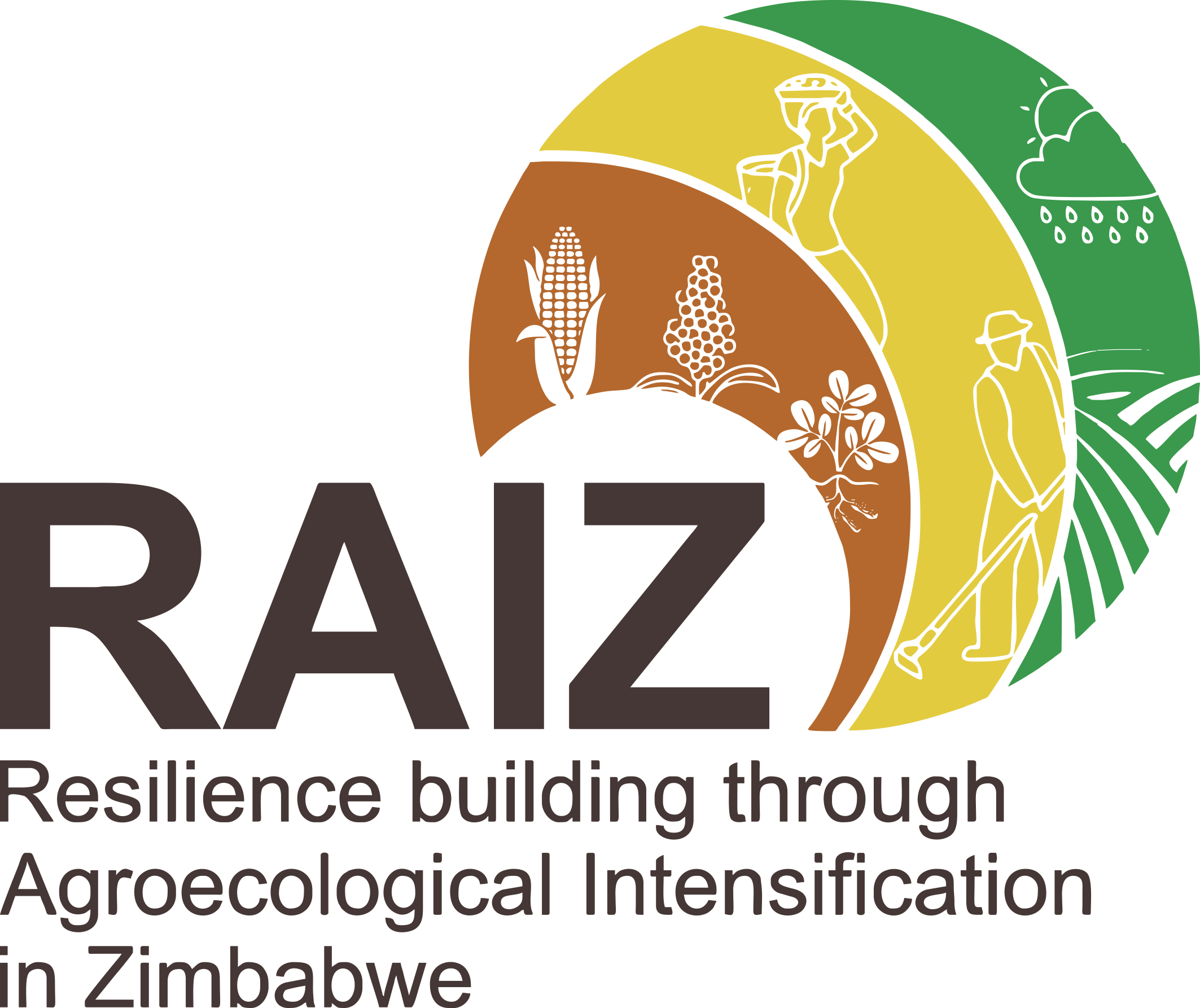Agroecological practices and the contribution of organic soil fertility amendments on soil and maize productivity under conservation agriculture (CA) along a declining rainfall gradient in Zimbabwe.
Research questions
- What current agroecological climate-smart crop production practices are farmers employing in Murehwa and Mutoko districts of Zimbabwe and what are their short and long term livelihood impacts?
- To what extent do organic soil fertility amendments improve soil quality characteristics in CA maize cropping systems on a declining rainfall gradient?
- To what extent do organic soil fertility amendments improve maize productivity and quality in CA maize cropping systems on a declining rainfall gradient?
- What are the key long-term household productivity trends/ patterns observed in CA smallholder farming systems with the use of organic soil fertility amendments in Zimbabwe?
General context
Maize productivity under rainfed smallholder farming systems in Zimbabwe remains not spared from the effects of climate change. Biodiversity loss and degraded soils which result from climate change effects largely contribute towards low maize yields in communal settings. On the other hand, due to an increasing population, demand for maize production is high since the crop is staple. Population growth promotes urbanization, which in turn is slowly replacing agricultural lands and at the same time reducing livestock herds. Livestock play a crucial role in agricultural production through addition of organic matter resulting in both soil and crop improvement. Therefore, agroecological intensification can be ascertained by interventions that simultaneously enhance food sustainability and resilience in agricultural systems. Agroecological approaches that include the addition of organic soil amendments in maize cropping systems can improve soil health, increase crop yields and reduce negative environmental impacts. However, it is important to consider the type and quantity of organic fertilizers used, as well as their application rates to ensure optimal maize growth and environmental sustainability.
Importance of the research question
One major contributing factor towards low maize yields in Zimbabwe is climate change effects that result due to unpredictable weather patterns such as droughts and floods. Therefore, solutions that would improve maize productivity under extreme weather patterns area ideal. Sustainable intensification involves agroecological practices that focus on sustainable and environmentally friendly farming methods. These practices aim to enhance soil health and promote biodiversity. Therefore, addition of organic soil fertility amendments as an agroecological approach is key in maize based cropping systems. Soil health will improve through the adoption of organic fertilizers enabling farmers to mitigate the negative impacts of drought and erratic rainfall on maize production. In a number of studies, organic soil fertility amendments have shown to improve both soil and maize productivity (Mahmood F. et al., 2017; Wang X. et al., 2017). However, it is important to understand the impact of organic soil fertility amendments on maize productivity in CA systems along a declining rainfall gradient. This study will provide insights into how to maintain and enhance soil fertility without relying heavily on synthetic inputs. Farmers will potentially reduce production costs and increase their overall profitability by reducing reliance on expensive synthetic inputs and promoting sustainable farming methods. The study findings will contribute towards the development of evidence-based recommendations and policies that promote organic soil fertilizers in CA-maize cropping systems in the country.

Sibusisiwe DUBE
PhD Student
Duration
2023-2025
Location
Agroecological regions IIb, IV and V (Mutoko and Murehwa Districts)
Supervision
Main supervisor – Prof. Tafadzwanashe Mabhaudhi (UKZN)
Co-supervisors – Dr Isaiah Nyagumbo (CIMMYT) -Dr Vimbayi G.P. Chimonyo (CIMMYT)
Biography
Sibusisiwe Dube holds a BSc Honours Degree in Agriculture (Crop Science) from the University of Zimbabwe (2010) and an MPhil in Agriculture (Crop Science) attained at the University of Fort Hare in South Africa (2018). Currently she is registered at the University of KwaZulu-Natal, South Africa as a PhD fellow. She is a research scientist with more than 10 years working for the Ministry of Agriculture under the Department of Research and Specialist Services in Zimbabwe. Her interests and passions are centred around conservation agriculture, nutrient cycling, soil organic matter dynamics, carbon sequestration, soil nitrogen use, resource -use efficiency, plant nutrition and climate change mitigation and adaption. She is committed to actively engage and advocate for sustainable climate-resilient solutions that alleviate poverty and enhance food and nutrition security in smallholder farm settings in the face of climate change.
